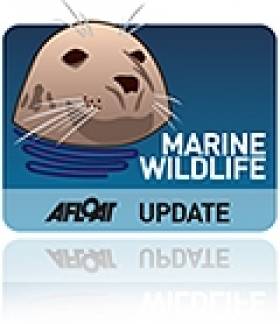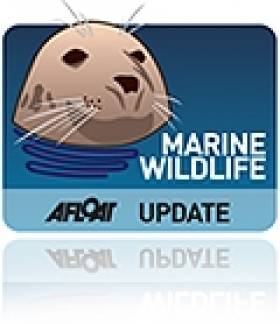Displaying items by tag: Marine Conservation Society
RYA 'Encouraged' By Britain's Moves On Marine Conservation Zones
#RYA - The Royal Yachting Association (RYA) has said it is "encouraged" by the British government's approach to designating Marine Conservations Zones (MCZs) around the coastlines of England and Wales - the details of which have disappointed environmental groups.
RYA planning and environment advisor Caroline Price commented: “The phased approach that government is proposing appears on the face of it to be very sensible.
“The RYA has been resolute in insisting that an MCZ should be no larger than required to protect the habitats and wildlife features which it is intended to protect and that the scientific basis for designating a particular feature for protection should be sound.
“We are pleased therefore to see that ministers have recognised that they need to have a strong evidence base when looking to designate sites, from both an ecological and socio-economic perspective.
“We are particularly encouraged that the approach to highly protected sites is being reviewed as the proposals for Reference Areas are of great concern to us.”
Of the 31 sites proposed in the consultation for designation by the end of 2013, the RYA has objections to only one of the sites - the Aln Estuary, which contains "a small charted anchorage in the one location in which a vessel can stay afloat at all states of the tide in the estuary".
The response from the RYA comes just days after environmental groups in the UK expressed their dismay over the government's decision to designate just a quarter of the recommended 127 sites.
As the Guardian reports, Westminster was accused of a "lack of ambition" by the Marine Conservation Society (MCS) over the announcement last Thursday 13 December, which it says ignores the government's own advisers who recommend a 'coherent network' that includes immediate designation for 59 sites regarded as 'highly threatened'.
The RYA says it is "broadly supportive of government plans to establish a coherent network of Marine Protected Areas and Marine Conservation Zones.
"However, it has fought throughout the process to date, and will continue to do so, to protect the public right of navigation and to ensure, as far as is possible, that recreational boating interests are not adversely affected by the designation of such MCZs."
It also emphasises that the "omission of the detail of management measures from this [public] consultation means that we still don’t really know what designation will actually mean" to affected local communities.
NI Minister Brings Forward Marine Litter Strategy
Stormont's environment minister has called for a marine litter strategy in Northern Ireland.
UTV News reports that Alex Attwood joined thousands of volunteers taking part in a morning cleanup on the shores of Belfast Lough for the Marine Conservation Society's Beachwatch Big Weekend.
The minister said he has demanded that his department implement a marine litter strategy to deal waste washing in from the sea.
"Our coast is a great asset and we must keep it in good order," he said. "Marine litter is widespread and the problem can only be tackled at the source.
"I am amazed at the variety of plastic debris and packaging that we have found."
Beachwatch Big Weekend took place across the UK as part of the Ocean Conservancy's International Coastal Cleanup.
Welsh Keep a Look Out for Leatherback Turtles
Beachgoers in Wales have been urged to watch out for leatherback turtles who have come to the Irish Sea attracted by the rising numbers of jellyfish.
There have already been a dozen sightings of the endangered marine creatures off the UK coast this year, according to the Marine Conservation Society.
“There are so many jellyfish this year, with lots and lots of reports, particularly in the Irish Sea – it’s turtle heaven, there’s so much food for them,” said MSC biodiversity programme manager Dr Peter Richardson.
The society is hoping to identify any hotspots where they can run protective measures.
The leatherback turtle can grow up to 3m long as weigh as much as a tonne. They are often mistaken for floating logs, said Dr Richardson, but "once you see their large reptilian head, massive flippers and ridged leathery shell you can’t mistake them for anything else".
The Western Mail has more on the story HERE.


























































